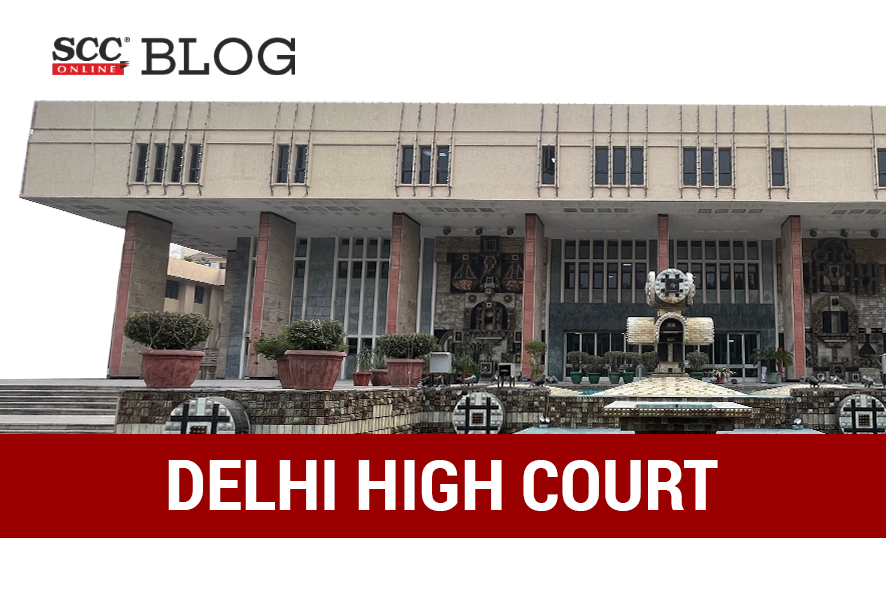Delhi High Court: In a petition filed by Union of India (petitioner) challenging the order passed by the Central Information Commission (CIC) directing the Directorate General of Anti-Dumping and Allied Duties to provide the information sought by the Right to Information (RTI) applicant, Mr. Arvind M. Kapoor (respondent), Prathiba M Singh, J. set aside the impugned order and held that the authorities under the RTI Act, the CPIO, PIO, First Appellate Authority and the CIC would not have the requisite expertise or wherewithal to comment upon or assess the impact of disclosure of confidential information submitted or obtained in anti-dumping proceedings.
A complaint was filed by Indian Synthetics Rubber Private Ltd. (ISRPL) and Reliance Industry Ltd. for initiating investigation qua imports of Styrine Butadine Rubber (‘SBR’) originating in or exporting from European Union, Korea RP and Thailand that initiated an anti-dumping investigation. Pursuant to which, the petition sought information under RTI Act, 2005 which was thereby given except the ‘note sheet’ being confidential in nature.
Aggrieved by the non-supply of all the information as sought in the RTI application, the Applicant preferred an appeal wherein the First Appellate Authority intimated that the note sheet sought by him comprised of confidential information that cannot be summarized into a non-confidential version. Being dissatisfied with the reply given by the FAA, the RTI Applicant preferred a second appeal under Section 19(3) of the RTI Act to the CIC which passed the impugned order.
The present writ petitions raise important issues concerning the interplay of anti-dumping proceedings under the Customs Tariff Act, 1975 and Anti-Dumping Rules with the Right to Information Act, 2005. The Court noted that Article 6 of GATT recognized the concept of confidential documents and information on the one hand and nonconfidential summary on the other hand. The latter is meant to ensure that requisite information is still provided to third parties to comply with the principles of natural justice while maintaining confidentiality of specific information. The ultimate discretion under the Anti-Dumping Agreement is to be vested in the authority concerned to decide as to whether any information is to be disclosed or not.
The next question for consideration arises from the request of the RTI Applicant seeking the note sheet of the Directorate General of Anti-Dumping that hinges upon the determination, that whether the Anti-Dumping Authority is obliged to provide information under the RTI Act when there is a complete framework governing, inter alia, supply of information in anti-dumping proceedings in the form of Anti-Dumping Rules.
Placing reliance on Registrar of Supreme Court of India v. R.S. Misra, 2017 SCC OnLine Del 11811 and Chief Information Commissioner v. High Court of Gujarat, (2020) 4 SCC 702, the Court noted that the Anti-Dumping Agreement entered amongst countries, post GATT, recognizes the sensitivity and the competitive advantage that can be gained by third parties if confidential data is disclosed. Thus, the said information can be refused to be disclosed for ‘good cause’.
The Court observed that A perusal of the note sheet sought would also show that the disclosure of the same under the RTI Act, especially in a case where the RTI Applicant was a party to the anti-dumping investigations and is a competitor of the Petitioners could cause serious prejudice and adversely affect various sections of the domestic industry. In the context of disclosure of information regarding anti-dumping proceedings, the DA must undertake a detailed enquiry into issues such as ‘competitive advantage’, ‘business sensitivity’, ‘productivity particulars’, ‘cost of raw materials’, ‘investments made’, ‘sales’, ‘market share’ etc.
Thus, the Court concluded that anti-dumping proceedings by their very nature are proceedings which have national and international dimensions and have an impact on the country’s economy. It involves dealing with business sensitive and confidential information relating to a particular industry, assessment of trade relations between India and various other countries. The entire purpose of having a complete and self-sufficient scheme for disclosure of confidential information under the Anti-Dumping Rules would be defeated if persons who are participating in anti-dumping investigation are permitted to tangentially seek information under the RTI Act.
The Court held that the Anti-Dumping Authority is vested with specialized knowledge relating to the trade as also exclusive knowledge in respect of anti-dumping proceedings. Such knowledge would enable the said Authority to take a considered decision as to whether the information is to be disclosed or not. Such expertise does not vest with the CPIO/PIO or other authorities under the RTI Act.
[Union of India v Arvind M Kapoor, 2023 SCC OnLine Del 1803, decided on 23-03-2023]
Advocates who appeared in this case:
Mr Ajay Digpaul, CGSC along with Mr. Kamal R. Digpaul and Ms. Swati Kwatra, Advocates for the Petitioners;
Mr. Ankur Sharma Advocate for R-1, Mr. Rajesh Sharma, Advocate for the Respondents.







